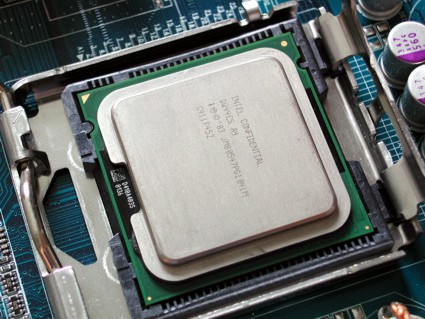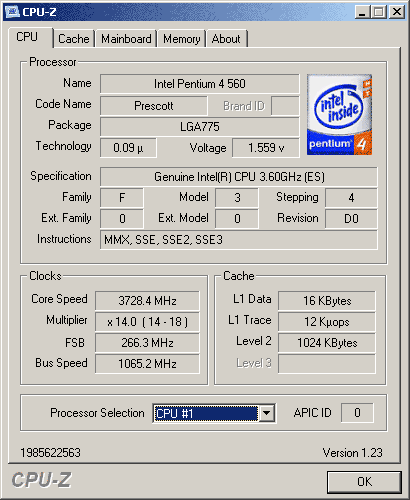Looking ahead to Intel's 925XE chipset and FSB1066
Get Tom's Hardware's best news and in-depth reviews, straight to your inbox.
You are now subscribed
Your newsletter sign-up was successful
P4 E0 Stepping: Thermal Monitoring 2 And XD-Bit
In Q3, Intel will basically overhaul all of their 775 processors, because E0 is going to completely replace D stepping. Luckily Intel decided to mark the new chips with a 'J', which can be seen with the new top model 570J, which is the new top Pentium 4 model with 3.8 GHz.
Thermal Monitoring 2 (including Enhanced Halt State) is very similar to Enhanced Speedstep, which is used in Intel's mobile Pentium M processors. Enhanced Speedstep reduces clock speed and core voltage depending on the CPU load. Undoubtedly, implementing energy management is the right step to take these days, but it's too bad that it had to take a 'hot' processor design such as the Prescott to force Intel to go this direction.
We already took a look at how the Execute Disable bit (XD) or Non Execute bit works in a previous article. To sum it up in a few words, it basically prevents malicious code from being executed. Whenever a memory area is marked with the XD flag, Windows XP with Service Pack 2 will refuse to run code from this non-executable memory area. Intel will introduce XD both for the Pentium 4 and the Celeron D (325 to 350), but not for socket 478 processors.
We don't have an insight as to why it took so long to get Service Pack 2 ready, but AMD has been offering this feature under the NX name since the Opteron launch in April 2003, as well as with the Athlon 64 family later that year in September. Only the operating system support has been missing - something that AMD must have been familiar with already.
Pentium 4 Up To 4 GHz
We ran a Pentium 4 at 266 MHz FSB clock (FSB1066) and hit the 3.73 GHz that Intel is going to release in Q4.
In Q3, Intel plans to release the Pentium 4 570 at 3.8 GHz, with the 4 GHz variants to follow well before Christmas. The latter will be called Pentium 4 580. Faster versions are possible, but not likely.
More interesting than the race for small clock speed increases is the introduction of FSB1066 and suitable processors. The first model at 266 MHz FSB speed will be the Pentium 4 Extreme Edition at 512 kB L2 cache and 2 MB L3 cache. Simultaneously the 925XE chipset will be released (see below). Again, the expensive Extreme Edition targets gamers and enthusiasts.
Get Tom's Hardware's best news and in-depth reviews, straight to your inbox.
Current page: P4 E0 Stepping: Thermal Monitoring 2 And XD-Bit
Prev Page Intel's 925XE And FSB1066 Platform Route Next Page P4 Processor 720... At 64 Bits?
Patrick Schmid was the editor-in-chief for Tom's Hardware from 2005 to 2006. He wrote numerous articles on a wide range of hardware topics, including storage, CPUs, and system builds.

